News
-
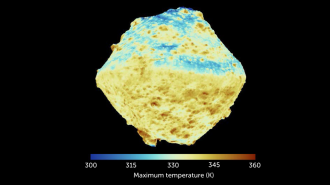 Planetary Science
Planetary ScienceThe asteroid Ryugu has a texture like freeze-dried coffee
Only about half of the asteroid Ryugu is rock; the rest is airy holes, a finding that could help reveal details of how the planets formed.
-
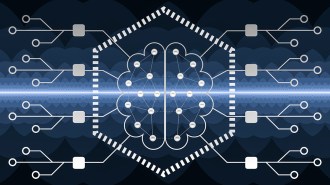 Artificial Intelligence
Artificial IntelligenceAn AI that mimics how mammals smell recognizes scents better than other AI
An artificial intelligence modeled after the neural circuitry in mammalian brains can keep learning new aromas without forgetting others.
-
 Health & Medicine
Health & MedicineCoronavirus is most contagious before and during the first week of symptoms
As major efforts to contain the COVID-19 pandemic go into effect around the globe, researchers are figuring out just when patients are most contagious.
-
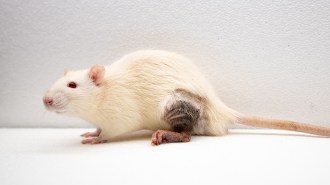 Health & Medicine
Health & MedicineA trick from cancer cells helps rats accept transplanted limbs
Rats that received microparticles that release a chemical signal to recruit immune cells tolerated hind limb transplants for more than 200 days.
-
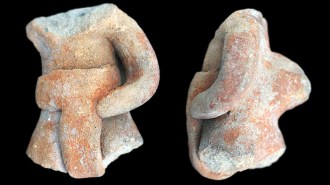 Archaeology
ArchaeologyAn ancient ball court sheds light on a game made famous by the Aztecs
A 3,400-year-old ball court in the southern mountains of Mexico suggests many societies contributed to the development of an ancient, well-known Mesoamerican ball game.
By Bruce Bower -
 Health & Medicine
Health & MedicineSocial distancing, not travel bans, is crucial to limiting coronavirus’ spread
Everything from waving hello instead of shaking hands to cancelling large gatherings of people will help slow the spread of COVID-19.
By Jonathan Lambert and Tina Hesman Saey -
 Health & Medicine
Health & MedicineCruise ship outbreak helps pin down how deadly the new coronavirus is
Infections and deaths on the Diamond Princess suggest that, in the real world, 0.5 percent of COVID-19 infections in China end in death.
-
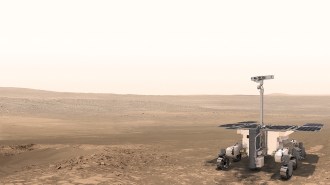 Planetary Science
Planetary ScienceCoronavirus and technical issues delay a Mars mission’s launch
The joint European-Russian ExoMars rover’s launch was postponed from July to 2022 so technicians could resolve issues with the landing equipment.
-
 Astronomy
AstronomyThe star Betelgeuse might just be dusty, not about to explode
A new study suggests that dust recently expelled by Betelgeuse is why the star dimmed suddenly in late 2019 before brightening again.
-
 Health & Medicine
Health & MedicineWhat WHO calling the coronavirus outbreak a pandemic means
The world’s top global health organization is asking countries to double down on efforts to both contain the virus and mitigate its impact.
-
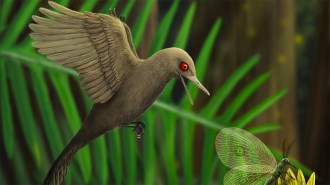 Paleontology
PaleontologyThis ancient dinosaur was no bigger than a hummingbird
The skull of one of these Mesozoic Era birds — the tiniest yet known — was discovered encased in a chunk of amber originally found in Myanmar.
-
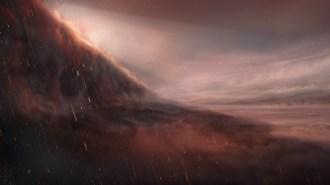 Astronomy
AstronomyHeavy metal may rain from the skies of planet WASP 76b
Astronomers saw hints of iron rain on an ultrahot gas giant, an exoplanet where starlike atmospheric temperatures drive weird weather.